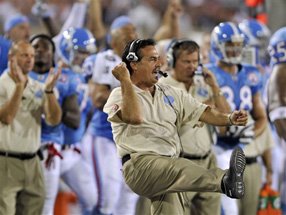|
|
Monday Morning Quarterback Part IBy BOP StaffAugust 10, 2009
Tim Briody: 60% drop easy. I wouldn't exactly call it a "fanboy" rush, Scott, since I'm not exactly sure there are G.I. Joe fanboys. Sadly, there's just a group of people who like their movies loud and with lots of 'splosions. Sean Collier: I would wonder if people who get their movie reviews in 140 characters or less would really be affected, positively or negatively, by word-of-mouth. I can't imagine anyone was tweeted out of buying a ticket. About all you can fit in the format is "GI Joe was terrible," and we all already knew that. David Mumpower: Any time there is a newly developing behavior such as the immediacy of word-of-mouth, a couple of notable exceptions quickly occur. G.I. Joe is absolutely one of them. I don't think many of the people who bought tickets were deluded into thinking they were going to see an Academy Awards contender. What was done here was a variation on the Mel Gibson playbook. By showing the film in America's heartland and emphasizing the populist military aspect of it, Paramount redeemed the biggest mistake on the film, globalizing it in order to give it a chance at bigger worldwide box office. It was a way of saying, "We changed it, but we didn't really mean it." That message struck a chord and it led to a re-establishing of trust that was sorely needed. Effectively, the Twitter Effect isn't much of a factor for hard working folks who don't spend much time on the Internet. Kim Hollis: I would also contend that because G.I. Joe skews pretty young, the Twitter Effect was negated to some degree. What we're seeing about the demographics of Twitter is that it's not even close to being as youthful a group as you would believe. It really wasn't even a strong trending topic over the weekend - Julie & Julia was right there with it, anyway. I do think District 9 might be a good one to watch for the social media impact.
|

|
|
|

|
Thursday, April 25, 2024
© 2024 Box Office Prophets, a division of One Of Us, Inc.


